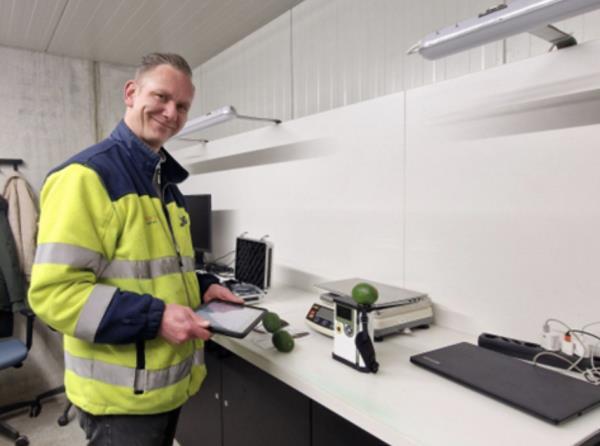Customer experience: Dutch company enhances quality assurance with second avocado meter by Felix Instruments
To optimize the efficiency of its quality control processes, Normec Maas Goodacre has recently added a second Avocado Meter from Felix Instruments to its operations. In an exclusive interview, Matthijs Jongejan, a dedicated quality inspector and supervisor at Normec Maas Goodacre, discusses the advanced features of the device, its real-world applications, and the key reasons behind its integration into the company's workflows.
Based in the Netherlands, Normec Maas Goodacre is recognized for its comprehensive food safety and quality assurance solutions within the food industry. The company is known for its integrated approach, which covers process control, laboratory testing, sensory analysis, QA automation, and risk management, positioning it as a leader in the field.
Felix Instruments, a pioneer in developing cutting-edge, portable, and non-invasive measurement tools, provides equipment that serves various sectors. The instruments have a wide range of uses, including:
Crop management and harvest optimization: These tools deliver fast, precise readings of avocado quality, facilitating data-driven decisions for harvest scheduling.
Post-harvest quality assurance: They are essential for inspecting avocados at different stages, from cold storage to ripening rooms and distribution centers, helping maintain quality control throughout the supply chain.
Research and crop breeding: The tools significantly speed up the collection of internal quality data, aiding breeding programs, high-throughput phenotyping, and analytical research.
Jongejan emphasized the time-saving benefits brought by Felix Instruments' Avocado Meter. "This instrument saves us a lot of time, which is crucial right now. We are receiving large volumes of avocados, with many new shipments arriving. For each shipment, we take samples from every container—different growers, different sizes. We then measure the dry matter content of the avocados. On a busy day, with 20 containers arriving and additional air shipments, we need to sample between 60 and 80 avocados daily," explained Jongejan.
He added that using the old oven method required at least 20 minutes of manual labor per sample. For 80 avocados, this process would take them over three and a half days of work. In contrast, with the Avocado Meter, it only takes about one to one and a half minutes per fruit. "The device performs three scans on one side of the avocado, we flip it, and it does three more scans. It's fantastic."
A key advantage of the Avocado Meter is that it uses near-infrared (NIR) technology, which allows non-destructive testing of the fruit. This means businesses can accurately assess avocado quality without damaging the produce, resulting in less waste. The return on investment is clear—consider the number of fruits saved from destruction and the reduced labor costs associated with quicker inspections.
Interested in seeing the Avocado Meter in action? Schedule a demonstration by sending an inquiry or visit them at Fruit Attraction in Madrid, Hall 6, Stand E16A.





